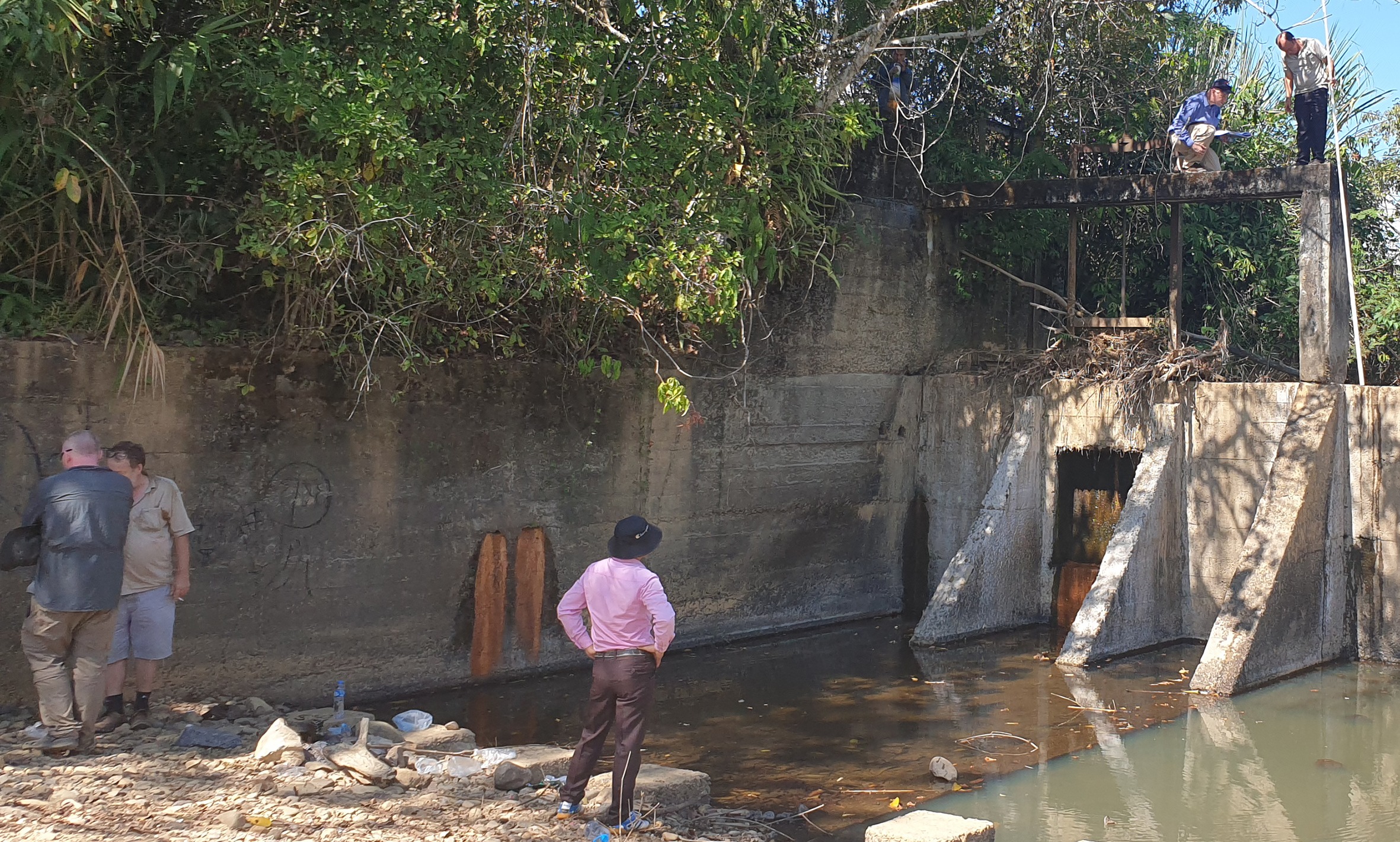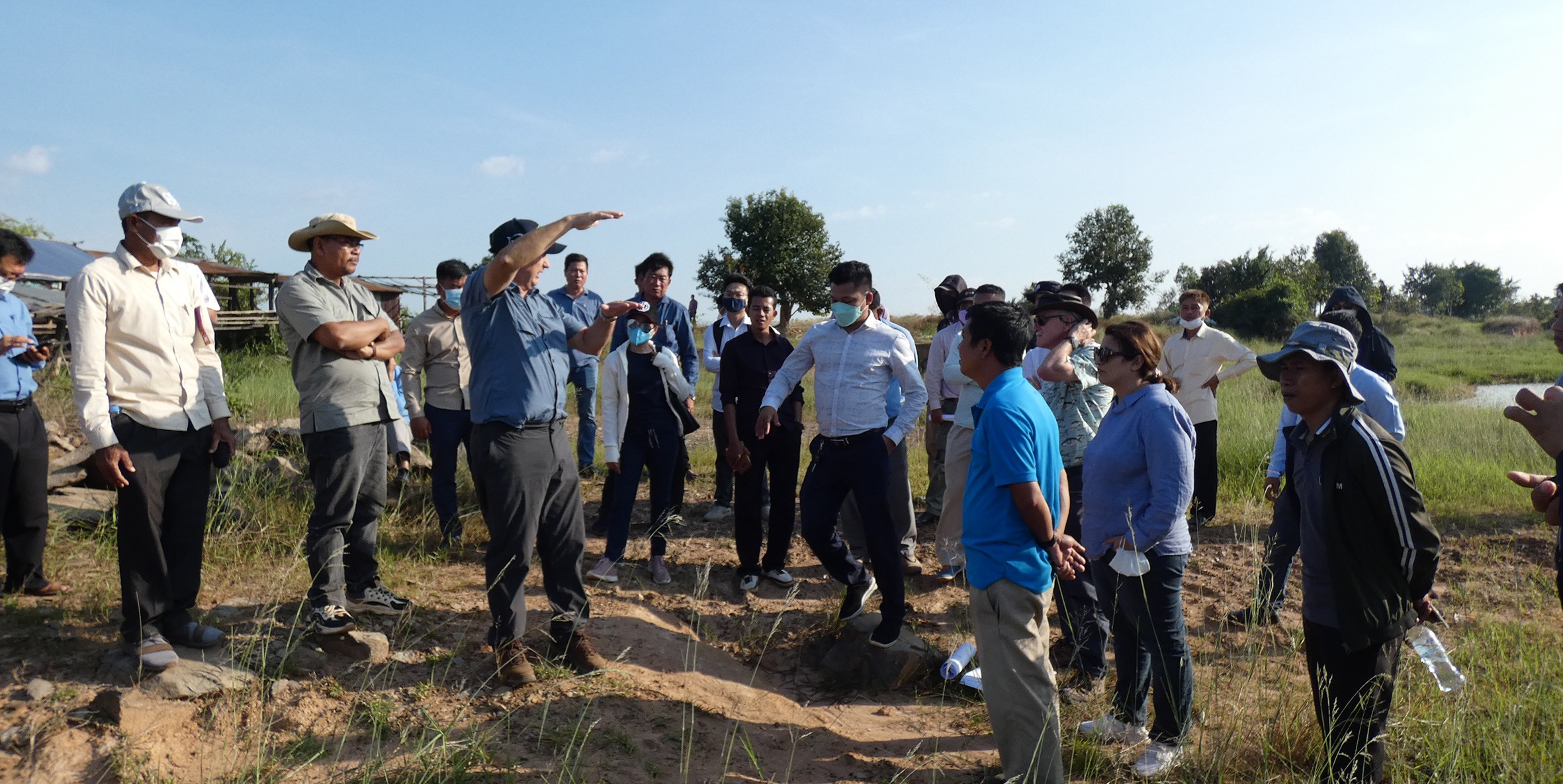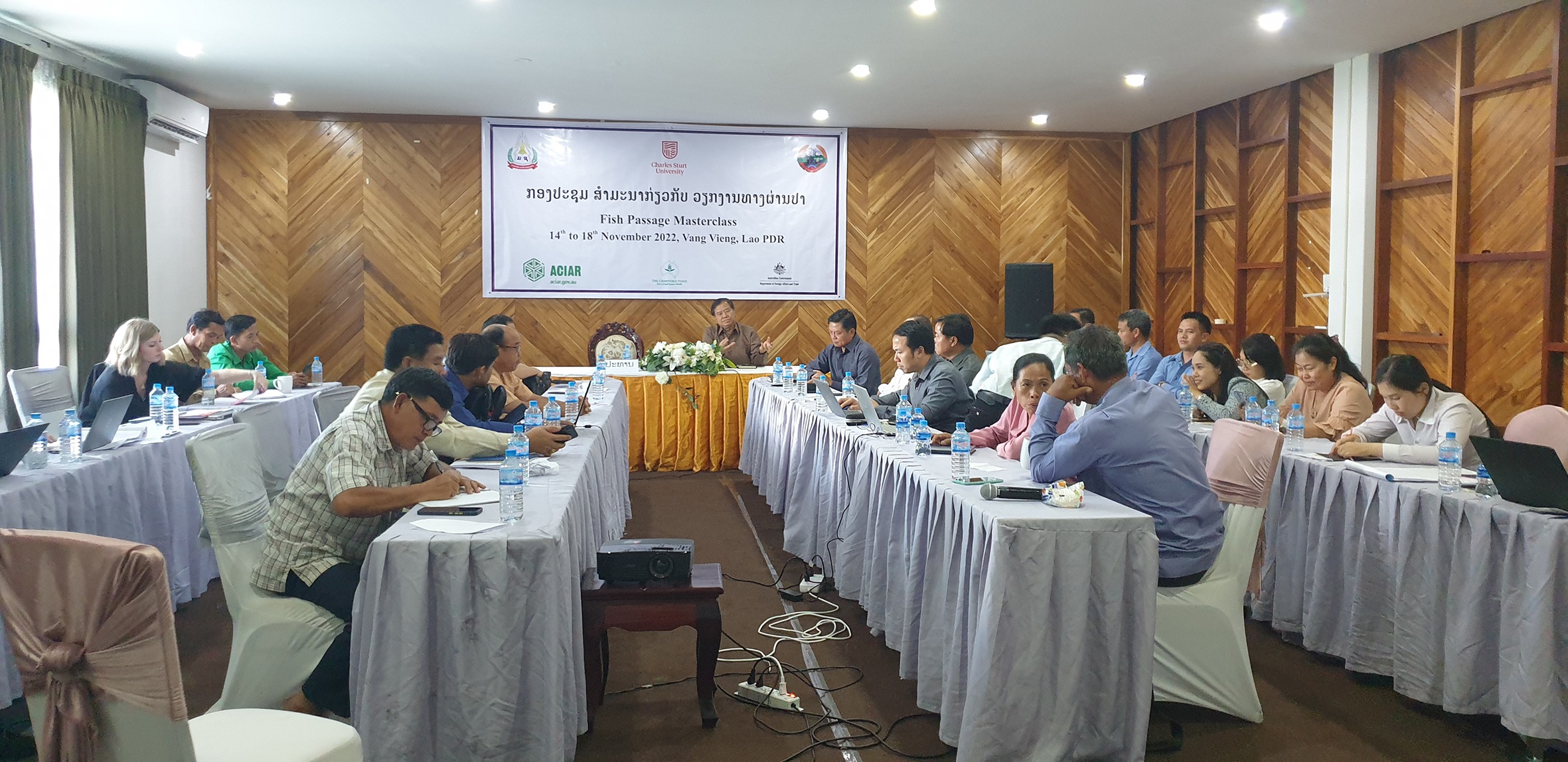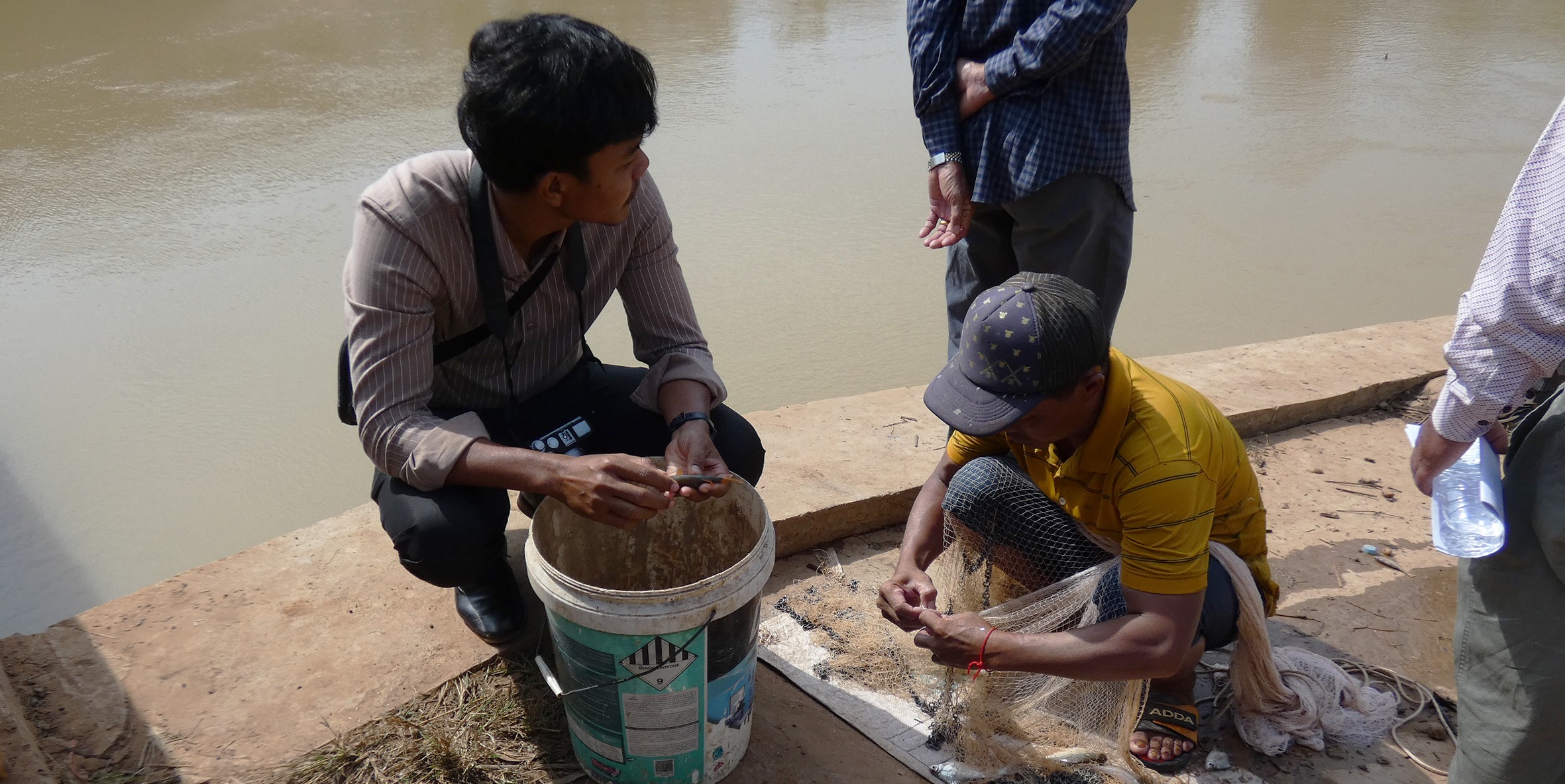

Fish Friendly Irrigation Guidelines for Laos and Cambodia
July 19, 2023

The Crawford Fund’s highly sought after Student Awards are one way we support and encourage the next generation of Australians into study, careers and volunteering in international agricultural research.
The awards are funded by our State and Territory Committees and made possible by organisations including ACIAR, international centres, Australian and overseas universities and NGOs who host our awardees.
In 2022, we announced 14 tertiary students had won awards to gain international agricultural research experience and expertise. With the resumption of global travel, we are excited to see many of the young NextGen Student Awardees travelling overseas to undertake projects, with quite a few involved in our Instagram campaign, reporting when they are on the ground. Nicolette Duncan, a PhD student from Charles Sturt University completed her student award research in Laos and Cambodia and shares her experience below.
“The aim of my project was to determine the effectiveness and impact of fish friendly irrigation guidelines written between 2018-2020 for the Lower Mekong Basin and if and how they could be improved,” said Nicolette.
Nicolette’s project was associated with ACIAR Project 153 – FishTech: Integrating technical fisheries solutions into river development programs across South East Asia.
According to Nicolette, her project aimed to determine:
- the extent to which fish-friendly irrigation guidelines written between 2018-2020 for the Lower Mekong Basin are similar or different.
- the extent to which fish-friendly irrigation guidelines written between 2018-2020 for the Lower Mekong Basin are perceived as useful to authors and users.
- what actions, if any, are needed to improve fish-friendly irrigation guidelines.
- the role that guidelines have in fish-friendly irrigation infrastructure uptake in the Lower Mekong Basin and how, if at all, this can be made more effective or impactful.
The Crawford Fund has supported earlier Charles Sturt University training in fishways over the years, associated with their projects with ACIAR. CSU is considered a leader in fish-friendly water infrastructure research, exporting their human and technical resources to several South East Asian countries said Nicolette.

“My research will contribute to diversifying their local research team and support their efforts, investment and reputation for improving fisheries and livelihoods through greater enhanced understanding of social and communication complexities. The output will be a published journal article which evaluates perceptions and needs of guideline users in relation to guideline formulation and design,” she said.
Fishways facilitate fish migration past water infrastructure via a specially constructed channel, constituted of stepped pools that reduce the vertical height that fish must travel over dams into incremental steps, allowing fish to ‘climb’ over the infrastructure and continue their migration upstream. While this technology has been implemented all over the world, knowledge is still in a nascent stage, especially in the tropical rivers of South-East Asia.
Charles Sturt University, with funding from ACIAR has been working with partners in the region for more than 10 years and through research and development has established fundamental principles of fishway design and function suitable for Mekong systems and its tributaries. Through the Crawford Fund supported Fish Passage Master Classes, it is sharing this information with water resource stakeholders in countries such as Lao Peoples’ Democratic Republic (PDR), Cambodia and others with the aim of increasing local capacity to design and construct fish-friendly water infrastructure.
With the support of the Crawford Fund, Nicolette was able to attend a Fish Passage Master Class in Lao PDR and Cambodia. The Master Classes were jointly convened by the National University Lao, Lao Ministry of Agriculture, and CSU in Vang Vieng, Lao PDR and by the Ministry of Agriculture, Forestry and Fisheries, Fisheries Administration and CSU in Siem Reap, Cambodia. This opportunity facilitated meeting water resource stakeholders of diverse backgrounds such as local fisheries biologists, irrigation engineers, village leaders, provincial officers, university staff and representatives from the Mekong River Commission.

Nicolette conducted interviews with local stakeholders to further her understanding of how the target audience of fish passage guidance perceived training efforts, especially with respect to fish-friendly irrigation guideline documents. Interviews were transcribed and coded for qualitative analysis.
“The results showed that while these types of guidelines are perceived as useful by the target audience, rarely is the target audience involved in guideline creation, and a mismatch was found between user expectations of guideline documents and the guideline contents. Recommendations to improve guideline utility and uptake suggested by the target audience related to themes of governance, technical data and social factors, underlining the complexity of meeting the needs of multiple stakeholders in water resource management,” she said.
Valuable insight was quickly revealed to Nicolette, as to the lived experience of interview respondents, including how the local and organisational contexts of users influences the impact and utility of guidelines, and the contribution this can make to guideline formation and fish-friendly irrigation praxis.

She found that the reviewed guideline utility and impact could be improved by attention to five key aspects: definition of target audience; engagement of target audience in guideline design; definition of guideline scope; specificity of recommendations; and evaluation.
“This work strengthens established two-way learning relationships between Australian and regional water resource management stakeholders including Lao PDR and Cambodian government departments. It presents a novel lens through which to view the interactions between in-country implementation partners and fishway researchers, including NSW based CSU practitioners,” concluded Nicolette.
The data collected in Lao PDR and Cambodia will contribute to a journal article in turn will feed into work conducted by CSU and ACIAR in the lower Mekong Basin to promote fish passage at irrigation barriers in the region.




